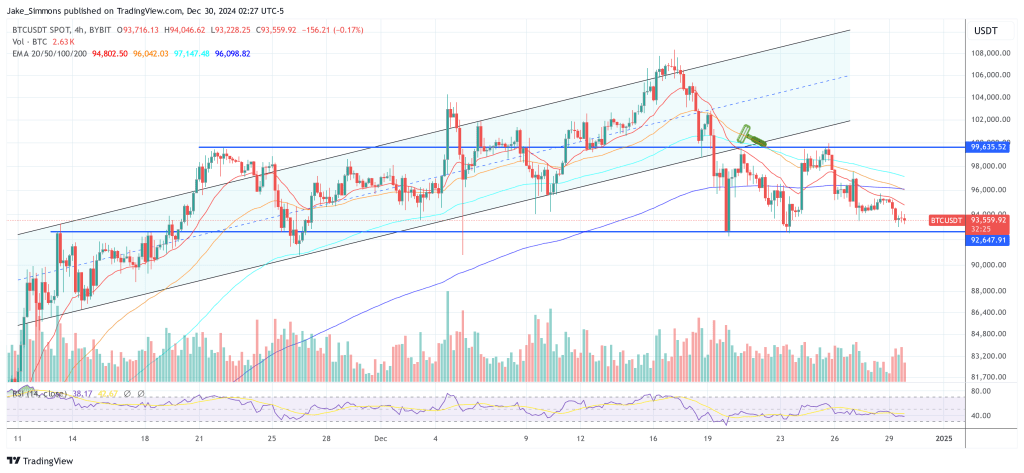
In the days before Christmas, El Salvador formalized a new agreement with the International Monetary Fund (IMF) that includes a partial retreat from the country’s high-profile Bitcoin policies. After becoming the first nation to classify BTC as legal tender in 2021, El Salvador required businesses to accept BTC as payment.
However, an announcement on December 18 revealed that the IMF and El Salvador had found common ground on a framework that, in the Fund’s words, ensures “Bitcoin-related risks are being mitigated” and confirms that private sector adoption will now be strictly voluntary, while public sector involvement in BTC transactions and holdings will be tightly limited.
Why Is The IMF Anti-Bitcoin?
Following the new agreement, Daniel Batten, a ClimateTech venture capitalist and ESG analyst, offered an examination on X, arguing that the IMF’s disapproval of El Salvador’s BTC policy reveals a fear of losing control. He argues that the IMF’s stringent conditions are not merely about risk management but are fundamentally about preserving the fund’s influence over global financial architecture.
Batten stated, “Why is the IMF so critical of Bitcoin? Why was the IMF so intent on imposing strict anti-Bitcoin conditions over El Salvador? Simple. Bitcoin represents erosion of IMF influence over global financial architecture in not one but five key ways.”
Batten explains that BTC could diminish the IMF’s lending leverage, noting, “The IMF provides loans, chiefly though not exclusively to developing nations, often requiring reforms such as ‘structural adjustments’ in return. If Bitcoin enables countries to access alternative funding sources or operate outside the traditional financial system, it diminishes the IMF’s ability to impose these conditions and influence economic policies.”
Furthermore, Batten discusses how BTC disrupts the IMF’s role in financial surveillance. He articulates, “The IMF conducts financial surveillance to assess risks and provide guidance to its members. BTC’s decentralized and pseudonymous nature undercuts the IMF’s oversight role, directly weakening its authority and power in the international arena.”
Another point Batten raises involves the potential for BTC to undermine the role of Special Drawing Rights (SDRs), which the IMF uses as a supplementary international reserve asset. He explains, “Bitcoin has the ability to replace Special Drawing Rights as a global reserve asset. Making SDRs less relevant reduces demand for IMF-led financial tools, impacting the institution’s ability to coordinate international liquidity.”
Batten also touches on the broader implications for Central Bank Digital Currencies (CBDCs), which many IMF member countries are exploring with guidance from the IMF. He notes, “Bitcoin represents an opposing digital currency vision of the future: Simply put, Bitcoin gives more financial autonomy to people; CBDCs centralize more power with Central Banks. The adoption of Bitcoin over CBDCs reduces the IMF’s role in shaping digital ‘financial innovation’ and diminishes its influence over the digital global monetary system.”
Finally, Batten argues that BTC adoption is already impacting the IMF’s core business model. He points out, “The IMF generates revenue chiefly from interest on loans. Bitcoin adoption has already strengthened the economies of Bhutan, El Salvador, and Ethiopia, reducing their reliance on IMF programs. More widespread adoption reduces the IMF’s customer-base and weakens their core business model of providing loan financing to developing nation states.”
Batten concludes his analysis by emphasizing the long-standing role of the IMF at the heart of the global financial system, stating, “For many decades, the IMF has enjoyed a position at the center of the global financial system, working with central banks and governments to influence economic policy. Bitcoin, being decentralized, bypasses these institutions entirely. Widespread Bitcoin adoption reduces the IMF’s ability to act as a gatekeeper and mediator in global financial matters, threatening its relevance.”
At press time, BTC traded at $93,559.



















